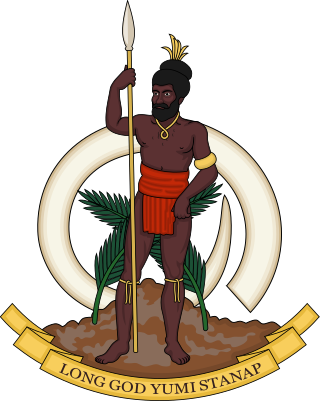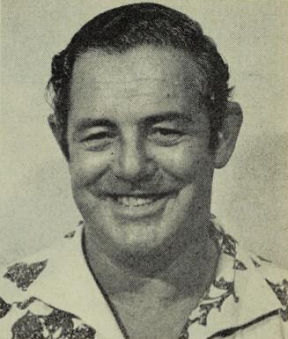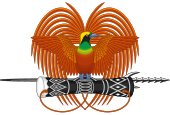
General elections were held in Papua New Guinea between 18 June and 9 July 1977, the first since independence from Australia in 1975. The Pangu Party led by Prime Minister Michael Somare emerged as the largest in the National Parliament. Somare subsequently formed a coalition government with the People's Progress Party (PPP) and several independent MPs. Voter turnout was 60.3%.

General elections were held for the first time in the New Hebrides on 10 November 1975. The result was a victory for the New Hebrides National Party, which won 17 seats in the new Representative Assembly.

General elections were held in the Territory of Papua and New Guinea between 19 February and 11 March 1972. They saw the election of the country's first female MP, Josephine Abaijah.

General elections were held in Papua and New Guinea for the first time on 10 November 1951.

General elections were held in Papua and New Guinea on 2 October 1954.

General elections were held in Western Samoa on 15 November 1957.

General elections were held in Papua and New Guinea on 31 August 1957.

By-elections for all three elected seats in the Legislative Council were held in Papua and New Guinea on 12 September 1959. The incumbent MLCs had resigned due to the imposition of income tax in the territory by the Australian government. All three seats were won by candidates supported by the Taxpayers' Association. The three new MLCs all resigned by 1 October.

General elections were held in Papua and New Guinea on 27 August 1960.
General elections were held in Dutch New Guinea for the first and only time in January 1961.

General elections were held in the Territory of Papua and New Guinea between 15 February and 15 March 1964. They were the first elections in the territory held under universal suffrage. Voter turnout among enrolled voters was 65%.

A by-election for Kaindi constituency was held in the Territory of Papua and New Guinea between 16 July and 15 August 1966.

General elections were held in the Territory of Papua and New Guinea between 17 February and 16 March 1968.

Donald Barrett was an Australian planter, army major, politician and sports coach in the Territory of Papua and New Guinea. He served as a member of the Legislative Council and House of Assembly in two spells between 1951 and 1968.

Matthias Tutanava Toliman was a Papua New Guinean politician. He served as a member of the House of Assembly between 1964 and 1973, also holding ministerial roles from 1964 until 1972.
Oala Oala-Rarua was a Papua New Guinean educator, civil servant, trade unionist, politician and diplomat. He served as a member of the House of Assembly and Assistant Minister for the Treasury between 1968 and 1972, later becoming the first Lord Mayor of Port Moresby and High Commissioner to Australia.
Basil Edward Fairfax-Ross was an Australian businessman who spent much of his career in the Territory of Papua and New Guinea. He served as a nominated member of the Legislative Council from 1951 to 1963.

Ronald Thomas Dalton Neville was an Australia-born Papua New Guinean politician and businessman. He served as a member of the House of Assembly and National Parliament from 1964 to 1977.

Sir Pita Simogun was a Papua New Guinean policeman, farmer and politician. He served as a member of the Legislative Council from 1951 to 1961 and then as a member of the House of Assembly from 1964 to 1968, during which time he was also Parliamentary Under-Secretary for Police.
Vin ToBaining was one of the first six elected indigenous members of the colonial-era Legislative Council of Papua and New Guinea, between 1961 and 1963. Subsequently, he was involved in the formation of the Pangu Party in 1967, which went on to form the government of Papua New Guinea (PNG) when the country became independent in 1975.







